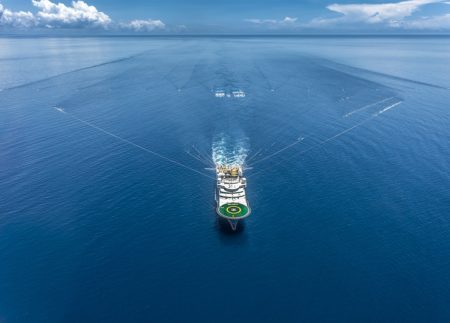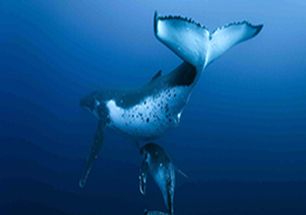Policy On The Use Of Live Animals For Experiments
Guiding principles
The JIP recognises that research intended to reveal the effects of Exploration and Production (E & P) sound on marine animals may require acoustic exposure of animals that disrupts behaviour, or causes discomfort, pain or (rarely) death. The JIP’s policies with regard to these procedures are stated below. They are intentionally more restrictive regarding death of injury of test subjects than the policies maintained by government laboratories or universities that conduct research related to human health. The JIP is concerned about animal conservation for which it believes animal death or serious injury are not warranted. However, for policies on narrowly-defined procedures, such as drawing blood or attaching instruments, the JIP defers to government and university Institutional Animal Care and Use Committees (IACUCs), best practices of the scientific community, and to corporate guidelines on these subjects.
General Animal Use Policies
- Proposals for research under IOGP JIP involving invasive testing on live animals must come from institutions having an Institutional Animal Care and Use Committee (IACUC) that evaluates the work in terms of needs and methods to be used. If no local IACUC exists the research must comply with the guidelines of the American Society of Mammalogy [see Journal of Mammalogy 2007, 88(3):809-823, or the ASM web site at https://www.mammalsociety.org/uploads/committee_files/CurrentGuidelines.pdf]. The JIP will provide explicit guidance to applicants in such cases.
- The policies and guidelines for animal testing used by the local IACUC will be presented to JIP for comparison to the policies listed here. Individual companies within the JIP may conduct their own independent comparisons.
- Proposals to JIP must describe any applicable legal requirements (permits, prohibited activities, etc) concerning experiments, and how they will be met.
- The use of any animal in testing or research is only justified when the knowledge gained is intended to benefit animals in the wild; the benefit of the research to the population should outweigh the cost to the individuals used.
- Animals may be used in experiments only when necessary information is unavailable or insufficient to assess noise impacts, and only when no suitable substitutes are available. The number used will be reduced to the minimum number required for statistical validity. Duplication of research that uses animals is to be avoided. A quality assurance procedure will be established to ensure test data are of the highest possible quality.
- Animals used in testing should be of good quality and the same species as those that are exposed to E&P activities in the field, or are valid replacements for those species.
- Testing should be refined so as to minimise pain or discomfort to the extent possible while remaining consistent with sound scientific practices. Testing that causes pain or discomfort shall not be performed for teaching or demonstration purposes, but only to collect data needed to meet a project’s contractual obligations.
- Procedures that cause more than momentary pain or distress will be carried out using appropriate sedation, analgesia, or anaesthesia. Surgical or other painful procedures should be carried out on animals that are anaesthetised by suitable chemical agents.
- New or novel invasive procedures will be developed in consultation with a veterinarian.
- JIP will not sponsor research that causes death or life-threatening injury to any marine mammal, bird, or turtle. This prohibition does not extend to fish or invertebrates, nor to stranded, sick, or wounded animals that are to be euthanized for reasons unrelated to the research.
- Fish or invertebrates that would suffer chronic or severe pain or disability after testing should be humanely euthanized at the end of the procedure.
- JIP will not support research that intentionally causes Permanent Threshold Shift (in mammals this is assumed to be more than 40 dB of shift).
- All marine mammal, bird, or turtle deaths in JIP-supported research are to be reported to JIP as unanticipated research outcomes.
- Animals should be housed in facilities that are appropriate to their species, that meet appropriate regulatory care standards, and that are overseen by a veterinarian or designated animal care committee (e.g. IACUC). Veterinary care will be provided as required.
- All personnel involved in animal testing should be trained in the humane handling and care of the subject species or similar species. They should be experienced in the procedure to be carried out.
- Any deviation from the above principles should be approved by the Institutional Animal Care and Use Committee of the principal investigator’s institution, and the Technical Management Committee of the JIP.
See for example, U.S. Government Principles for the Utilization and Care of Vertebrate Animals used in Testing, Research, and Training; The Animals (Scientific Procedures) Act 1986 (UK); and EU Directive 86/609/EEC on the Protection of Animals used in Experiments and other Scientific procedures.



